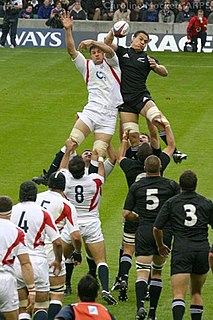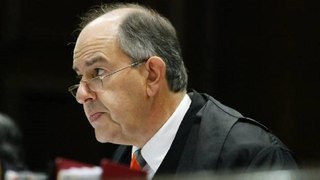| Finnigan v New Zealand Rugby Football Union | |
|---|---|
 | |
| Court | Court of Appeal of New Zealand |
| Full case name | Finnigan and another v. New Zealand Rugby Football Union (Incorporated) and others |
| Decided | 21 June 1985 |
| Citation(s) | [1985] 2 NZLR 159 |
| Transcript(s) | Court of Appeal judgment |
| Court membership | |
| Judge(s) sitting | Cooke, Richardson, McMullin, Somers JJ, and Sir Thaddeus McCarthy |
| Keywords | |
| standing, judicial review, All Blacks, South Africa | |
Finnigan v New Zealand Rugby Football Union, was a case taken by a member of the Auckland University Rugby Football Club and a member of the Teachers Rugby Football Club against the decision of the New Zealand Rugby Football Union (NZRFU) Council to accept an invitation for the All Blacks to tour South Africa. The invitation came just four years after the 1981 South Africa rugby union tour of New Zealand had divided the New Zealand public over the All Blacks refusal to participate in the sporting boycott of South Africa during the Apartheid era. The decision primarily concerned whether the two plaintiffs had sufficient standing to challenge the NZRFU decision. The decision marked the adoption of the principles of R v Inland Revenue Commissioners ex p National Federation of Self-Employed and Small Businesses [1982] AC 617 approach to standing in judicial review into New Zealand law. [1]

South Africa, officially the Republic of South Africa (RSA), is the southernmost country in Africa. It is bounded to the south by 2,798 kilometres (1,739 mi) of coastline of Southern Africa stretching along the South Atlantic and Indian Oceans; to the north by the neighbouring countries of Namibia, Botswana, and Zimbabwe; and to the east and northeast by Mozambique and Eswatini (Swaziland); and it surrounds the enclaved country of Lesotho. South Africa is the largest country in Southern Africa and the 25th-largest country in the world by land area and, with over 57 million people, is the world's 24th-most populous nation. It is the southernmost country on the mainland of the Old World or the Eastern Hemisphere. About 80 percent of South Africans are of Sub-Saharan African ancestry, divided among a variety of ethnic groups speaking different African languages, nine of which have official status. The remaining population consists of Africa's largest communities of European (White), Asian (Indian), and multiracial (Coloured) ancestry.
In law, standing or locus standi is the term for the ability of a party to demonstrate to the court sufficient connection to and harm from the law or action challenged to support that party's participation in the case. Standing exists from one of three causes:
- The party is directly subject to an adverse effect by the statute or action in question, and the harm suffered will continue unless the court grants relief in the form of damages or a finding that the law either does not apply to the party or that the law is void or can be nullified. This is called the "something to lose" doctrine, in which the party has standing because they will be directly harmed by the conditions for which they are asking the court for relief.
- The party is not directly harmed by the conditions by which they are petitioning the court for relief but asks for it because the harm involved has some reasonable relation to their situation, and the continued existence of the harm may affect others who might not be able to ask a court for relief. In the United States, this is the grounds for asking for a law to be struck down as violating the First Amendment to the Constitution of the United States, because while the plaintiff might not be directly affected, the law might so adversely affect others that one might never know what was not done or created by those who fear they would become subject to the law – the so-called "chilling effects" doctrine.
- The party is granted automatic standing by act of law. Under some environmental laws in the United States, a party may sue someone causing pollution to certain waterways without a federal permit, even if the party suing is not harmed by the pollution being generated. The law allows them to receive attorney's fees if they substantially prevail in the action. In some U.S. states, a person who believes a book, film or other work of art is obscene may sue in their own name to have the work banned directly without having to ask a District Attorney to do so.
Judicial review in English law enables people to challenge the exercise of power, often by a public body. A person who feels that an exercise of power is unlawful may apply to the Administrative Court for a court to decide whether a decision followed the law. If the court finds the decision unlawful it may have it set aside (quashed) and possibly award damages. A court may impose an injunction upon the public body.







